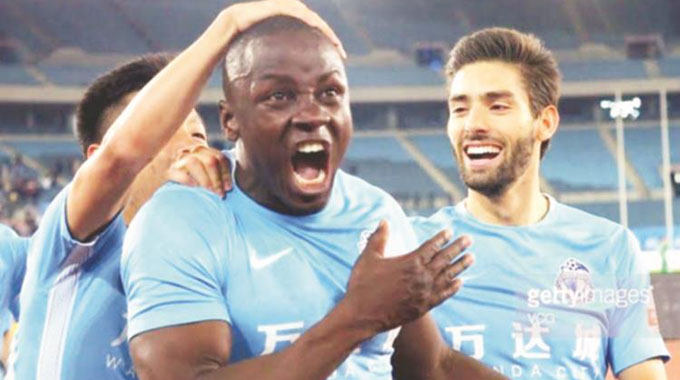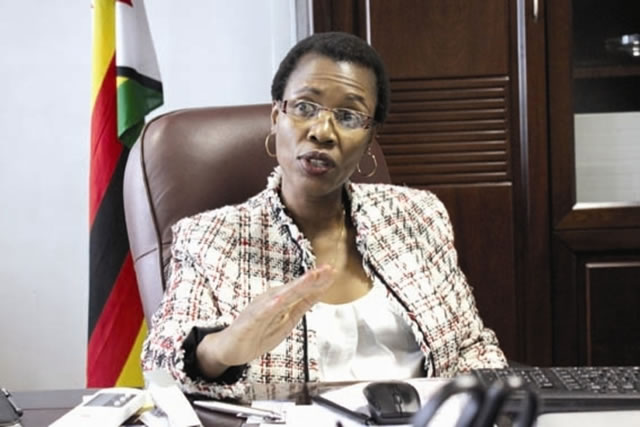Fabisch’s Dream Team, like Drogba’s Elephants, were the shining symbol of sporting immortality.

Fabisch’s Dream Team, like Drogba’s Elephants, were the shining symbol of sporting immortality. THE three-hour road trip took us north, past villages still bearing the scars of war, past villagers still haunted by the horror of armed conflict.
We were in a battered taxi, the driver and I, having met at the airport and somehow found a way, through all the language barriers, to trust each other for this journey.
I was being driven to Yamoussoukro, a city about 300km into the north-western heartland of Cote d’Ivoire, known as the abandoned capital of this country.
A taxi was the only option to get me there, in time for my mission because, they told me, the public bus service was simply unreliable.
And, when I asked about the domestic plane service, they had all laughed at me.
About 30 minutes from my destination, I finally lost my battle with fatigue, and slipped away into sleep.
But, I had already seen enough to make me shiver, to make me find false comfort in sleep, to make me fully appreciate the horror that comes when a nation is at war.
My taxi driver had warned me we were taking a huge gamble and, before we started this trip, he had to perform some rituals to ask his ancestors to protect us.
Whether it worked, or not, I will never know, but the point remains that I eventually made it to my destination.
It was January 2009, Côte d’Ivoire was struggling to emerge from a brutal civil war that had virtually split the country into two — the Christian south and the Muslim north.
The Warriors had made Yamoussoukro their base, and so had Ghana, Libya and the Democratic Republic of Congo.

SUPER MEN . . . Legendary football commentator, the late Evans Mambara (centre), joins members of the Warriors (from left), the late David Mwanza, Madinda Ndlovu, the late Shackman Tauro and Alexander Maseko for a photo during a tour of duty
They were all in Group B at the inaugural CHAN finals.
But, the matches were being played in Bouake, another 100km north into the central heartland of Côte d’Ivoire.
However, because of concerns for the safety of the visiting teams, the organisers had settled for them to be based in Yamoussoukro.
Bouake had been the capital of the rebel forces, during the civil war, and it was easy to see, once you entered the battered city, why this was really Ground Zero.
Issa Hayatou, the then CAF president, had gambled on using the power of football, to try and unite this divided country and, in the process, speed up the return to normalcy.
He had borrowed a leaf from Didier Drogba’s book, the Ivorian captain, who had also tried to use football to bring his divided country together, to silence the guns of war and to give peace a chance.
And, Bouake, represented the face of Drogba’ grand mission.

Didier Drogba
Two years before our arrival, he had brought the Elephants to play an AFCON qualifier in that rebel-held stronghold.
The sight of Government, and rebel forces, sitting side-by-side inside the 35 000 capacity Stade Bouake, during that game against Madagascar, cheering the Elephants and hugging each other, is still considered a miracle.
A GRAND MISSION, A POWERFUL GAME
This year marks 15 years since Drogba and his teammates embarked on that crusade to use their star quality, and the power of their game, to heal their nation.
It all started in the dressing room of the Al-Merrikh Stadium in Omdurman, Sudan, on October 8, 2005.
That night, the Elephants secured their maiden ticket to the World Cup finals, and Drogba ordered that a TV camera to be brought into their dressing room.
He then summoned his teammates into a huddle, and prayed for peace in his troubled homeland.
“Men and women of Ivory Coast,” Drogba began his address. “From the north, south, centre and west, we proved today that all Ivorians can co-exist and play together with a shared aim — to qualify for the World Cup.
“We promised you that the celebrations would unite the people – today, we beg you on our knees. Please lay down your weapons and hold elections. We want to have fun and so stop firing your guns.”
And, just like that, some of the barriers that had divided their country, started falling.
When Drogba, a Christian from the south, chose to celebrate his African Footballer of the Year award in Bouake, his charm offensive was succeeding were politicians had failed.
By the time we arrived in Bouake, the city was still being haunted by the scars of the civil war, but some of the locals said they believed the worst was over.
The intense bombardment had subsided, although pockets of fighting remained and, in Drogba and his Elephants, everyone had found a reason to look forward to a better tomorrow.
That’s the amazing power of sport, the irresistible power of football, the incredible power of sports heroes.

Lionel Messi
When days are dark, as is the case right now as the world finds itself in lockdown, it’s the powerful messages from Messi, Ronaldo, Guardiola, which are providing the rainbow of hope.
It’s the comforting message from Marvelous Nakamba, who has been urging his countrymen and women not to gamble with their lives, which has been providing a soundtrack of hope.
It’s the bravery of someone like Nyasha Mushekwi, who chose to return to his base in China, despite all the challenges that country has faced with this pandemic, which is sending a message it won’t be this gloomy.

Nyasha Mushekwi
It’s the impact of the amazing leadership being provided by Desmond Maringwa, in spreading the message of both caution and hope, which is making a huge difference.
It’s knowing that Peter Ndlovu cares for all of us, for his country, and for its future – thanks to the gospel he has been preaching in these trying times, which makes us try and do the right things to survive.

Desmond Maringwa
It’s about the beautiful gesture by our foreign-based players, to raise US$5000 to help the injured Partson Jaure, which cheers the spirits.
DREAM TEAM, A BRAND OF IMMORTALITY, A TEAM OF HOPE
That is why, I have never understood those who have always questioned the immortality of the Dream Team.
The guys who base their shallow argument along the lines that Fabisch and his men never qualified for any major tournament.
The same people who, somehow, argue that qualifying for a 24-team AFCON finals represents a grand achievement, than falling at the final hurdle of making it to a 12-team Nations Cup finals.
The same people who, somehow, argue that the Warriors of the ‘80s, who had only six places to play for – as the hosts and defending champions qualified automatically to the eight-team AFCON finals, were failures.
And, these great Warriors should be judged the same way as those who now have to qualify for a 24-team Nations Cup finals.
The same people who, somehow, say the quality of that Dream Team should have simply taken them to the AFCON finals.
But, somehow, they choose to turn a blind eye on the quality of the opponents Fabisch and his men faced.
Which, when compared to the Mickey Mouse teams we now have to play – the likes of Eswatini, the likes of Liberia, to qualify for the expanded AFCON finals, makes a mockery of their argument.
The Dream Team had to play a Zambian team good enough to finish second at the ‘94 AFCON finals and good enough to finish third at the ‘96 Nations Cup finals.
The same Chipolopolo side failed to beat those Warriors, home and away, and needed a late equaliser in Harare to beat us to a place at the ‘94 AFCON finals.
Now, we play a pathetic and lifeless Chipolopolo side, smarting from a five-goal humiliation in Algeria, which has even failed to qualify for the last two AFCON finals.
Sometimes, in sport, the greatness of teams cannot be measured by mere results but the sheer impact they made on their nations, their communities and their people.
Drogba and his men didn’t win Nations Cup, even though they were led by one of the best strikers in the world, at the peak of his athletic powers, and featured a galaxy of others stars.
But, they still had the greatest impact in healing their nation they are hailed as a more powerful force of change, in Côte d’Ivoire, than the team that finally won this tournament five years ago.
No group of Warriors have united this country, given it so much hope and made Zimbabweans feel so proud to be associated with their football side, than the Dream Team.
In reaching the gates of paradise, becoming the only group of Warriors to come within 90 minutes of qualifying for the World Cup, they did much more than those teams which have qualified four times for the AFCON finals.
Like Drogba and his Elephants, it’s not about where the Dream Team went, but it’s what they did.
And, when their nation was crying out for something to unite it, they provided the prescription.
That is more important than trophies, than qualifying for this and that tournament, than being defined in terms of results, which are mere statistics.
What the Dream Team did was far much more than grinding scorelines.
I still remember Bouake, with its bullet-ridden buildings, and its defiant residents who had seen the worst of the civil war.
I still remember the burnt villages, on the road to Yamoussoukro and I still remember what Drogba and his Elephant did to change all that.
That’s why I will always remember the Dream Team. Because of what they did for this country, bringing us together, as one proud nation, helping us forget some of the challenges we had faced.
And, in times like these, I wish they were here now, Fabisch and his men, to provide us with some light, in this coronavirus darkness.
To give us hope that storms hit to pass and tomorrow will be a better day.
To God Be The Glory!
Peace to the GEPA Chief, the Big Fish, George Norton and all the Chakariboys in the struggle.
Come on United!!!!!!!!!!!!!!!!!!!!!!!!!
Bruno, Bruno, Bruno, Bruno, Bruno, Bruno!
Text Feedback — 0772545199
WhatsApp — 0772545199
Email — [email protected], [email protected]
You can also interact with me on Twitter — @Chakariboy, Facebook, Instagram — sharukor and every Wednesday night, at 9.45pm, when I join the legendary Charles “CNN’’ Mabika and producer Craig “Master Craig’’ Katsande on the ZBC television magazine programme, “Game Plan”.








Comments